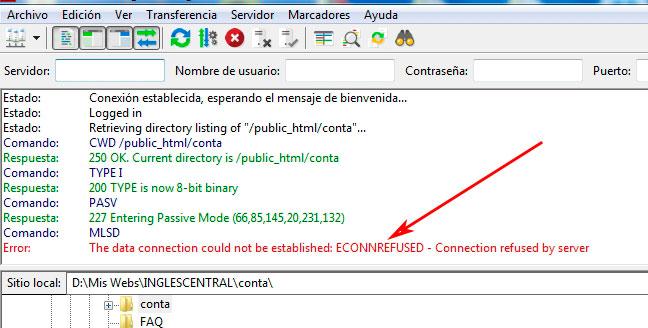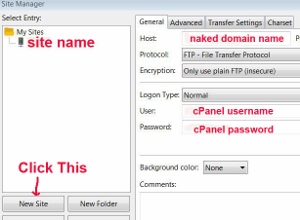

- #Justhost filezilla could not connect to server install
- #Justhost filezilla could not connect to server password
- #Justhost filezilla could not connect to server windows
When the next command is sent, however, ssh notices that the line has been dropped and exits. In any case neither ssh on the client nor sshd on the server notice that the connection has disappeared. This may be due to pppd, routers or whatever. Otherwise check that ssh hasn’t just suddenly died. If you’re wondering why tramp just hangs first check if you can connect to the host using the terminal (you should make sure that the server’s fingerprint has been added to the ~/.ssh/known_hosts file). Not sure how one might configure around this.

This is likely to be due to intermediate tmp files (guessing here) with the Tramp/sudo interaction. In the case of iptables having a system context it will prevent your firewall from restarting!
#Justhost filezilla could not connect to server install
With a default install of Tramp (well the one bundled with Emacs23) and have SELinux enabled then Tramp will overwrite the SELinux context with “user_u:object_r:tmp_t” from whatever it was. If you do something like this C-x C-f /sudo::/etc/sysconfig/iptables Troubleshooting Older emacs versions ( require ' tramp) SELinux issues It could be as simple (under emacs): ‘sshfs host: localmountpoint’ or, if username, id and gid are different as complex as ‘sshfs localmountpoint -o idmapfile,uidfile=uid,gidfile=gid’. Sshfs allows mounting on the fly a remote filesystem via ssh on a local mount point and to copy from it (see ). AlternativesĪ good alternative to Tramp that doesn’t do anything at the Emacs level is sshfs.

#Justhost filezilla could not connect to server windows
Windows issues are discussed on a separate page: Tramp on Windows.
#Justhost filezilla could not connect to server password
Windows with Cygwin tools installed, assuming no password is required: (setq tramp-default-method "sshx") Windows If you prefer the older syntax: (customize-set-variable 'tramp-syntax 'simplified)įor XEmacs use the syntax C-x C-f can also edit local files as root with either of the following (note the double colon, which is required) C-x C-f /su::/etc/hosts Newer or customized emacs installations may require prepending `ssh:` C-x C-f /ssh :remotehost RETįor GNU Emacs 26.1 or newer with Tramp 2.3 or newer, the method is required. (Note that this is used automatically in recent versions of Tramp.)įaster than the default scp (for small files) (setq tramp-default-method "ssh")įor GNU Emacs (if you don’t give a filename, syntax still requires an appended colon) C-x C-f /remotehost :filename RET (or /method :filename) You can speed up Tramp by using ssh’s “ ControlMaster” feature - see. when viewing a remote file, try M-x shell, M-x rgrep, etc. One of the neat things about using Tramp via a remote shell, is that Emacs will then automatically invoke other remote shell commands directly on that server, e.g.

All that changes is the filename convention to indicate that the file resides on a remote system. “Transparent” means that usually the user doesn’t have to worry about anything. It allows you transparent access to files on remote access. It can transfer the files using rcp or a similar program, or it can encode the file contents (using uuencode or base64) and transfer them right through the shell connection. Whereas the others use FTP to connect to the remote host and to transfer the files, TRAMP uses a remote shell connection (rlogin, telnet, ssh). TRAMP (Transparent Remote Access, Multiple Protocols) is a package for editing remote files, similar to AngeFtp or efs.


 0 kommentar(er)
0 kommentar(er)
